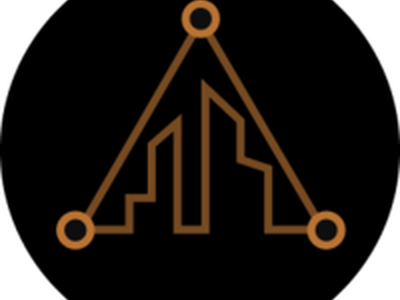

WHEN SIGNING UP PLEASE SIGN UP ON DEVPOST AS WELL AS THIS TYPEFORM!! About the challenge The hackathon explores novel and creative uses of data science to enable some of the regenerative city challenges. If you are a data scientist, python coder, or web developer looking to explore new ways of using PyScript, data science and or blockchain to solve fun and future challenges then sign up. All levels welcome. We have three hacker challenges focusing on economy, empathy and ecology in regenerative cities. Find the hacker briefs for each below Hacker Brief - Individual Challenges
ECONOMY - DECENTRALIZED ENERGY GRID
Master Question
How can we create decentralised energy grid solutions with blockchain?
Background
Implement a blockchain-based energy grid where households and businesses can generate, store and trade renewable energy independence and reducing carbon emissions?
What Are We Optimising the System For?
The system should incentivise the production and use of renewable energy by creating an open market for the sale and purchase of energy services. Keep it transparent, trustworthy and trackable by using blockchain technology. Improve efficiency of energy production and use by allowing it to be consumed nearer the generation source
Key Use Cases
Peer-to-Peer Energy Trading: Participants, including households and businesses, can engage in peer-to-peer energy trading. Surplus energy generated by one entity can be sold to others directly through the blockchain, promoting efficient use of energy resources.
Renewable Energy Credit Trading: Participants can earn and trade renewable energy credits, incentivizing the production and consumption of clean, renewable energy.
Secure and Transparent Transactions: Blockchain ensures secure and transparent energy transactions, eliminating the need for intermediaries and reducing the potential for fraud or disputes.
Stretch Goals
Implementing other features on the blockchain such as carbon credits, carbon offsets or something similar
EMPATHY - DATA LED CONSUMPTION
Master Question
How can we use big data to inform consumption management?
Background
How do we enable citizen behaviours towards consuming what the eco-system can support?
What Are We Optimising the System For?
The primary system objective is to promote sustainable consumption patterns by leveraging data-driven insights to guide individuals and communities towards more ecologically responsible choices. This aims to reduce overconsumption, minimize environmental impact, and ensure the long-term health of the ecosystem.
Key Use Cases
Personalised Consumption Recommendations: The system can provide individuals with personalised recommendations on their consumption habits based on their historical data and ecological indicators. For example, it may suggest a reduction in energy consumption during peak hours to alleviate strain on the grid.
Eco-Friendly Shopping: Consumers can access data-driven information about the environmental impact of products they intend to purchase. This includes data on carbon footprint, resource use, and waste generation, empowering them to make more informed, sustainable choices.
Transportation Optimization: The system can offer commuters real-time data on traffic, public transport, and environmental conditions, helping them make choices that reduce traffic congestion and lower emissions. For example, suggesting carpooling on high-traffic days.
Stretch Goals
Gamification and Rewards: Encourage eco-friendly actions with points, challenges, and virtual rewards for user engagement.
Blockchain and Transparency: Ensure trust in consumption data through blockchain's immutable records and smart contract-based limits.
ECOLOGY - RE-WILDING USING AI
Master Question
How can we use AI to rewild spaces both physical and digital?
Background
How do we enable the citizen led adaptation of physical and virtual environments to become adaptive live self-healing structures?
What Are We Optimising the System For?
The primary system objective is to rewild spaces, transforming them into sustainable, ecologically balanced environments. This involves using AI to enhance and guide the rewilding process, making urban and natural spaces more resilient and harmonious with the environment.
Key Use Cases
Ecosystem Restoration: In damaged or degraded ecosystems, AI can assist in the restoration process by analyzing the current state of the ecosystem, identifying key areas for intervention, and suggesting appropriate rewilding strategies. This can include the reintroduction of native species, habitat reconstruction, and the removal of invasive species.Adaptive Infrastructure: AI can help design adaptive, self-healing infrastructure that responds to environmental changes. For instance, smart roads or buildings that adjust their structure in response to shifting soil, seismic activity, or changing weather conditions.
Urban Greening and Biodiversity: In urban environments, AI can be applied to optimize the selection and placement of plant species and wildlife to encourage biodiversity and enhance green spaces. This could involve creating urban forests, rooftop gardens, and wildlife corridors in cities, providing both ecological benefits and improved quality of life for residents.
Stretch Goals
AI-Empowered Ecological Forecasting: Develop advanced AI models that can forecast ecological changes and adapt rewilding strategies in real-time. These models would continuously learn from ecological data and improve decision-making over time.
Global AI Network for Rewilding: Create a global network of AI systems dedicated to rewilding efforts, facilitating knowledge sharing and collaboration among regions, and connecting diverse communities, experts, and organizations with common rewilding goals.
Hacker Brief - Common Aspects Source Data Some example datasets have been supplied but participants must find extra data relevant to their project. Ensure any data found is open source. Some places you could source this data:
UAE Open Data Portal
Dubai Pulse Open Data Portal
World Bank Data Catalog
Access All supplied data is open access. Ensure relevant permissions are acquired for any external data. Processing AI models or blockchain technology can be used to enhance the functionality of any solution but isn’t essential. Touch Points/Interface None required, just a presentation with some form of demo of your concept Dates HACKDAY - 20th October
Sheikh Zayed Rd - Trade Centre - Trade Centre 2 - Dubai - United Arab Emirates
Global DevSlam
$0